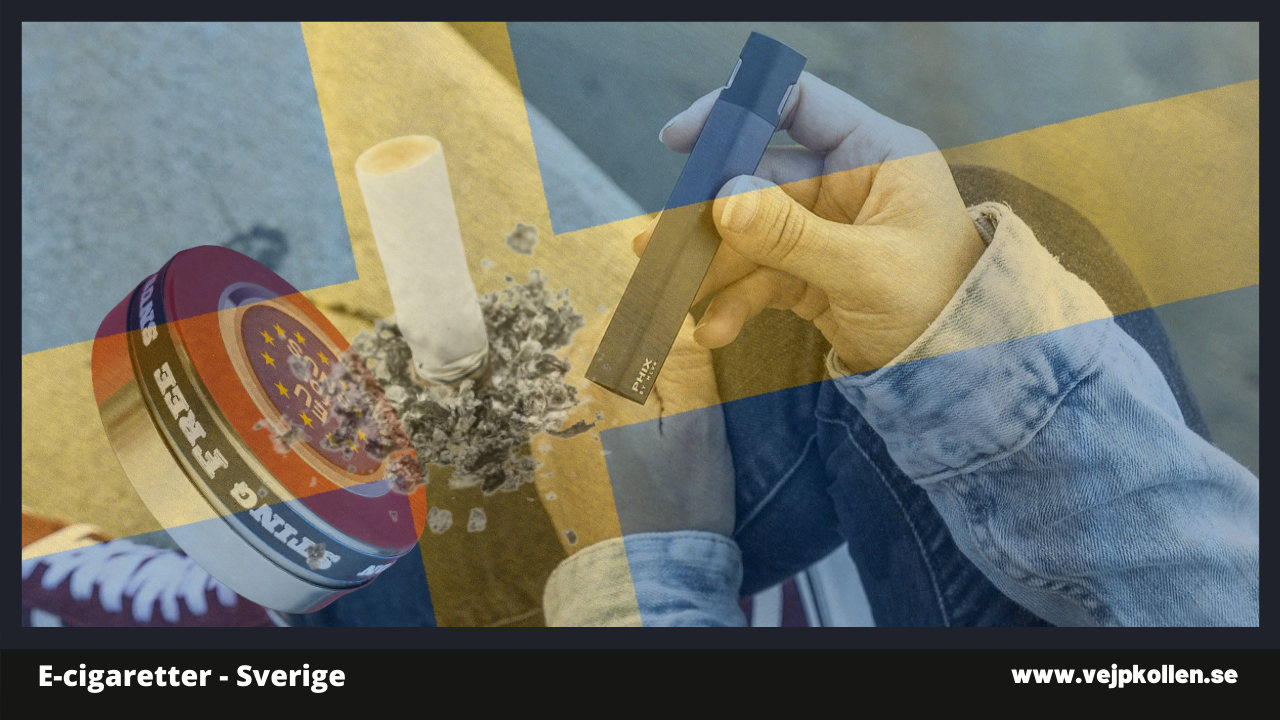The government wants to reduce the use of smokeless nicotine products such as e-cigarettes and snus. This is clear after the government submitted its proposal for a new ANDT strategy.
"It would have been better to focus on the medical harms of tobacco, that is, put the main focus on reducing smoking," said David Josefsson (m), who is critical of the proposal.
This week, the government released its proposal for a new ANDT strategy. The strategy will guide the political work on alcohol, drugs, doping and tobacco. The 100-page document sets out the government's objectives for the next five years. In addition to drugs, alcohol and tobacco, the government also wants to focus on tobacco-free products such as nicotine pouches and e-cigarettes. Among other things limit flavouring.
"The possibility of banning or otherwise regulating flavourings in e-cigarettes should be analysed," writes the government in its proposal.
Low smoking rates in Sweden
Sweden currently has the lowest percentage of smokers in Europe. Eurobarometer only 7 % of the Swedish population smokes, which is low compared to the EU average of 23 %. However, the use of nicotine is as high in Sweden as in the rest of the EU. The reason is that 20 per cent of Swedes use snus and similar products. Two per cent use e-cigarettes. According to the Eurobarometer, 20 per cent of Swedish smokers use snus or nicotine pouches as a substitute when they quit smoking.
Want to reduce accessibility
But now the government wants to tighten measures to limit the availability of alternative nicotine products. The aim is to reduce the risk of young people starting to use nicotine. According to Central Association for Information on Alcohol and Drugs (CAN). around 1% of children aged 14 to 17 use e-cigarettes daily or almost daily. It is more common to young people who already smoke, test e-cigarettes, according to CAN.
'For example, nicotine has adverse effects on the heart and blood vessels. Therefore, a precautionary principle should be applied by regulating nicotine products as harmful products. Access restriction measures are essential to reduce the use of tobacco and nicotine products, reduce health inequalities and protect children and young people in particular," writes the report. governments in its proposal.
M: "The main focus should be on smoking"
Moderate Member of Parliament David Josefsson believes that the government is on the wrong track. Both in terms of e-cigarettes and other alternative nicotine products like snus and nicotine pouches.
"A more nuanced approach would have been to work, as with alcohol, to reduce the medical harms of tobacco, i.e. to put the main focus on reducing smoking," writes David Josefsson in a letter to the editor. motion to the Parliament.
Need to distinguish between different nicotine products
According to David Josefsson a new ANDT strategy should distinguish between different types of nicotine products. Snus, e-cigarettes and traditional cigarettes have very different effects on health, he says. The government's ANDT strategy seems to be more about ideology than public health, according to the Gothenburg MP.
"We need to focus on the harms of each product. It will be strange if the policy only aims to reduce tobacco and nicotine use. If four people stop using snus but three of them start smoking, we have certainly reduced overall tobacco use, but in practice it would of course be a public health loss." says David Josefsson to Vejpkollen.
Cigarettes are the real problem
The ANDT proposal will be debated in Parliament later this spring. David Josefsson suspects that the proposal will pass, but hopes for a broader debate in the future.
"By all means, nicotine is not healthy. But just like alcohol, it is part of our culture and can be used in more or less harmful ways. There is greater openness about harm reduction among the parties today than before, at least in the opposition. The debate has become more mature. At the same time, there are strong forces pushing for different bans. But we need to focus on the real problem - smoking," says Mr Perez. David Josefsson.
Pending review of rules
The government is now awaiting a study and review of tobacco-free nicotine products to be completed by 31 March.
"The inquiry will analyse and take a position on whether the regulations on e-cigarettes and refill containers should be tightened and propose the necessary legislative amendments. Based on the inquiry's future proposals, the government will propose new rules aimed at reducing children's and young people's access to tobacco and nicotine products," writes the government.





What can we do to be heard? You get so frustrated when what saved your life (after 25 years of cigarettes) is dismantled with inaccuracies and lies. I stopped smoking raspberry flavoured cigarettes, if guns tasted like tobacco I probably wouldn't have even bothered. Tobacco laws compare cigarettes and vapes in a way that makes no sense, and the Swedish customs regulations regarding vape juice are downright ridiculous. So, what can we do? Almost feels like we need a national vape association that can speak out full time against these ignorant fools, I would gladly pay a membership fee for that!
Hi! Many people feel like you! Karl-Åke Johansson and I are discussing this on his YouTube channel:
https://youtu.be/5_xA7zZ9dCM
Supporting Vejpkollen via Patreon helps, of course. This gives me time to both organise and monitor developments more regularly.
https://www.patreon.com/vejpkollen?fan_landing=true
/Stefan, Editor-in-Chief of Vejpkollen